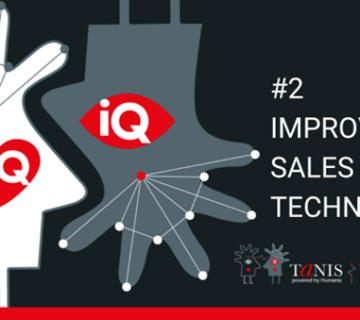Diversity, equity, and inclusion (DE&I) are key in shaping a healthy and thriving workplace. Below are the answers to the 10 most common DE&I questions we receive from our clients, to help you better understand its importance and how to implement it effectively.
1. What is diversity, equity, and inclusion (DE&I)?
Diversity refers to the presence of varied characteristics and backgrounds in the workforce, including race, gender, ethnicity, and more. Equity ensures fair treatment and access to opportunities, while inclusion is about creating an environment where all individuals feel valued and empowered to contribute fully.
2. Why is DE&I important in today’s workplace?
Diversity and inclusion foster a culture of innovation and collaboration, driving better decision-making and employee satisfaction. Inclusive workplaces tend to be more productive and resilient, helping companies outperform their peers in both innovation and financial metrics.
3. How does DE&I impact a company’s employer brand?
Organizations that prioritize DE&I improve their employer brand by attracting diverse talent pools, particularly from younger generations who increasingly seek inclusive workplaces. In fact, over 80% of employees consider DE&I efforts a key factor in choosing an employer, helping companies maintain a competitive edge in talent acquisition and retention. Read more here
4. How can small organizations start building a DE&I strategy?
Small and medium-sized companies can begin by conducting a DE&I audit to understand their current situation and identify areas for improvement. Clear communication, leadership commitment, and regular training are essential for success. Partnering with experts in the field can help small businesses craft a tailored DE&I plan.
5. How can large organizations become more diverse and inclusive?
Large organizations can leverage their scale to implement DE&I initiatives more systematically. This may involve setting measurable diversity goals, launching Employee Resource Groups (ERGs), and implementing policies like inclusive hiring and leadership development. Ongoing training and accountability at every level ensure these efforts are sustained across the company. Read more here and here.
6. What are some common barriers to successful DE&I implementation?
Resistance to change, unconscious bias, and a lack of leadership support can hinder DE&I progress. Organizations often struggle when DE&I is seen as merely a compliance issue, rather than a core value. To overcome these challenges, businesses need leadership commitment, continuous education, and transparent goals to track progress.
7. What role does leadership play in diversity and inclusion efforts?
Leadership is a cornerstone of any successful DE&I strategy. Leaders set the tone for an inclusive workplace by modeling inclusive behaviors and making DE&I a core business priority. Their active involvement—through sponsorship, mentorship, and advocacy—helps to drive organizational change and create a culture where diversity and inclusion are deeply embedded in everyday practices. Without leadership commitment, even the best DE&I strategies risk becoming unsustainable.
8. How can organizations measure the success of their DE&I efforts?
To measure success, organizations should use key performance indicators such as workforce demographics, pay equity data, and promotion rates across different groups. Employee engagement surveys and external audits or certifications can provide additional insights. Also, when it comes to measuring the effectiveness of your DE&I efforts, you can use specific tools to calculate your personal ROI.
MaxiROI is a brand-new application, powered by Humanis, enabling users to easily keep track of their personal development and improvement in applying the knowledge and techniques they acquired over their training sessions. By answering simple questions, or reading the resources available through the app, users can receive insightful content and guidance to translate their learnings into targeted actions and stay committed to their DE&I efforts.
Remember to set clear, measurable goals and regularly tracking progress helps ensure accountability.
9. How can DE&I certifications benefit organizations?
Programs like the “Inclusive Leadership” certification offered by Humanis and ACTA equip leaders with essential skills to drive inclusion in the workplace. These certifications emphasize addressing discrimination, promoting diversity, and developing leadership competencies for inclusive practices. Certification programs not only improve internal processes but also enhance the company’s reputation as an inclusive employer. Learn more here.
10. What role does Humanis play in fostering DE&I in organizations?
At Humanis, we partner with organizations to help them develop and implement effective DE&I strategies through tailored training, consulting, and certification programs. Our recent collaboration with ACTA to provide the “Inclusive Leadership” certification is part of a larger effort to create inclusive workplaces that thrive on diversity and equality, offering companies the tools and expertise needed to foster long-term, sustainable change
A strong DE&I foundation not only enhances organizational culture but also leads to tangible business outcomes, such as increased innovation, better employee satisfaction, and stronger financial performance.
Ready to transform your organization? Book a free conslultation session with our team!
The top 10 DE&I questions we get

Comments are disabled.



